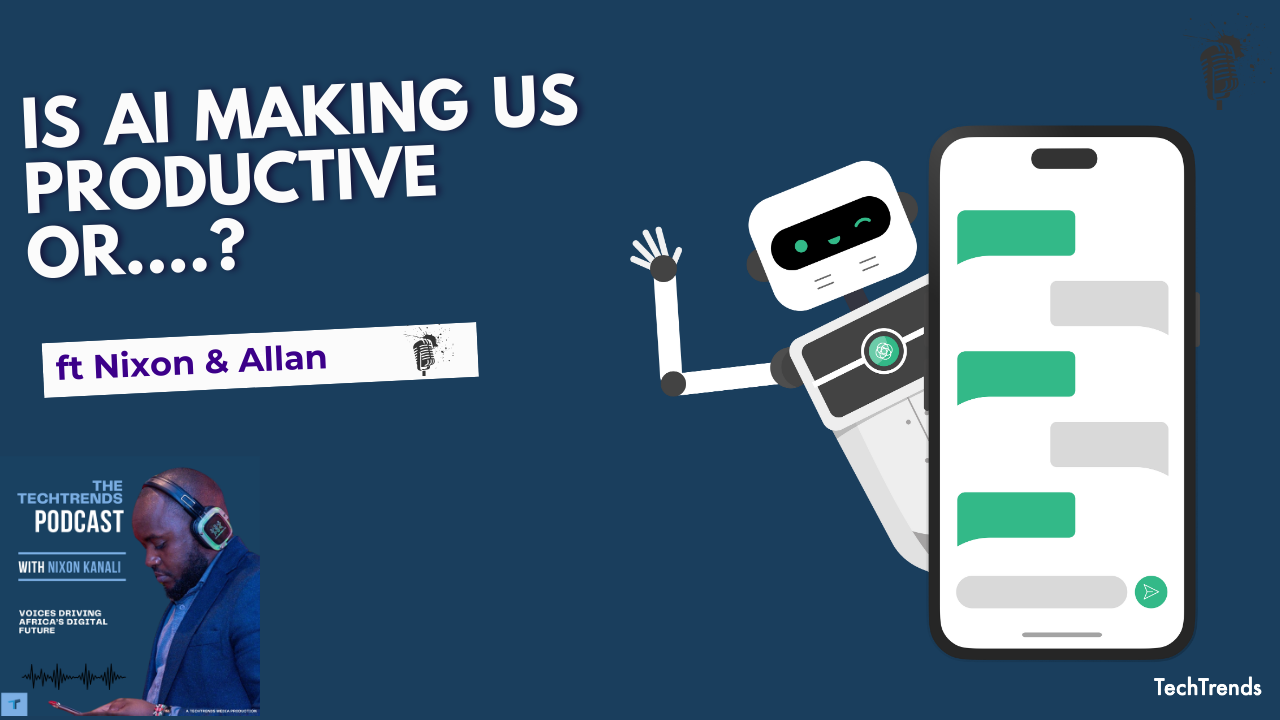AI in the Workplace: Boosting Productivity Without Replacing Humans

Since the rise of Artificial Intelligence (AI), people worldwide have raised concerns, chief among them: Will AI take away our jobs? Like any other technology, AI has advantages and disadvantages.
In the latest episode of The TechTrends Podcast hosted by TechTrends Media Editor Nixon Kanali and Allan Niongira, the duo dives into the impact of AI on employee productivity in Kenya. They explore how AI is already helping many companies boost efficiency, but also highlight the potential risks, especially the threat of job displacement in roles such as virtual assistants, typists, and designers. With tools like Designs AI, Chatbots, Jasper, and Siri, tasks traditionally done by humans are increasingly being automated.
While some individuals have embraced AI in the workplace, others remain sceptical, fearing that it could eventually replace them. Since AI is capable of performing tasks that people also do, some companies are choosing to cut down on payroll costs by adopting AI solutions, posing both economic and social challenges to individuals and societies at large.
That said, instead of replacing workers, local companies should focus on training employees to use AI effectively to enhance their productivity. This approach not only safeguards jobs but also empowers the workforce to remain competitive in a tech-driven environment.
Another growing concern among companies is overdependence on AI. Relying too heavily on AI systems can cripple operations when these systems fail. Businesses must therefore strike a balance between AI and human input to ensure continuity, even when technology fails.
Industries like advertising, marketing, and creative design have all begun using AI to generate content, from graphics to ad copy. While these tools can be incredibly useful, they also risk limiting human creativity. AI generates ideas based on commands and existing data, but it lacks the emotional depth and originality that only human minds can offer. Creativity should never be underestimated or entirely outsourced to machines.
In the podcast, Nixon cites an example where Kenya’s leading telco, Safaricom, used AI-generated images to promote its Home Fibre service, a move that faced backlash from the public due to the absence of authentic, human-generated content.
Another critical issue is Privacy. AI tools sometimes prompt users to input sensitive information, raising concerns about data security and breaches. Companies must therefore be vigilant and ensure proper safeguards are in place when integrating AI into the workplace.
Ultimately, as organisations continue to adopt AI, it’s important to view it as a tool for enhancement, not replacement. When used wisely, AI can support employees, improve productivity, and drive innovation, without rendering the human workforce obsolete.
This episode of the TechTrends Podcast is available on YouTube, Spotify, Apple Podcasts, Afripods and all other podcast streaming platforms you may be using.
Follow us on WhatsApp, Telegram, Twitter, and Facebook, or subscribe to our weekly newsletter to ensure you don’t miss out on any future updates. Send tips to editorial@techtrendsmedia.co.ke


